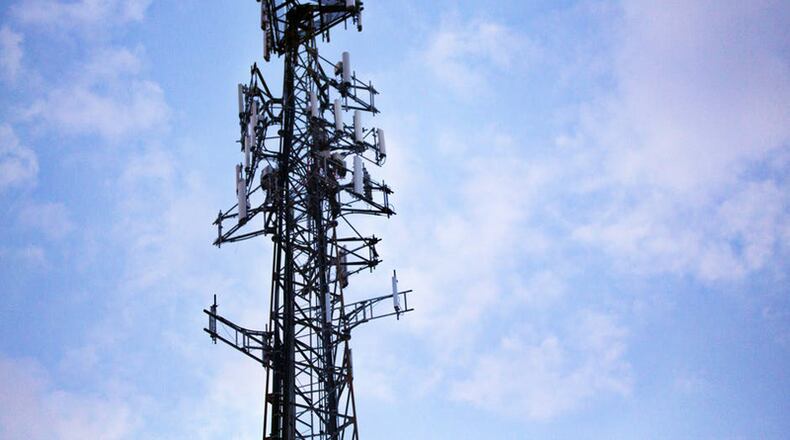The Federal Communications Commission confirmed it was investigating what caused a nationwide AT&T outage that crippled the nation’s largest wireless carrier Thursday morning.
In a statement to The Atlanta Journal-Constitution, the FCC said its Public Safety and Homeland Security Bureau was investigating the outage that left tens of thousands without cellular service.
“We are in touch with AT&T and public safety authorities, including FirstNet, as well as other providers,” the agency said in a statement.
Reports of outages started to trickle in shortly before 4 a.m., according to outage tracker DownDetector. The number of reports swelled to a peak of 74,000 by 9:30 a.m. as people woke up and realized they couldn’t make calls, send text messages or use any applications that required cellular data. WiFi capabilities were not affected.
By 11:15 a.m., AT&T said three-quarters of its network had been fixed. All service was restored by 3 p.m., the company confirmed.
It later blamed the incident on an error in coding, The Associated Press reported.
“Based on our initial review, we believe that (Thursday’s) outage was caused by the application and execution of an incorrect process used as we were expanding our network, not a cyber attack,” the Dallas-based company said without elaborating.
The FBI and Department of Homeland Security had also confirmed investigations to determine whether the outages were the result of a cyberattack, a hack or simply a technical malfunction. An internal memo obtained by ABC News from the Cybersecurity and Infrastructure Security Agency said there were “no indications of malicious activity.”
“Should we learn of any malicious activity we will respond accordingly,” the FBI said in a statement to the AP.
In Atlanta, the outage knocked out the city’s non-emergency 911 line (404-658-6666) and its 311 service, which is typically used for reporting non-emergency issues like potholes or a missed trash pickup. The lines were functioning again by 2:15 p.m.
Calls made directly to 911 were not disrupted, and dispatchers were able to make outbound calls, officials said.
AT&T and public safety agencies encouraged affected customers to enable WiFi calling or use web-based apps to communicate during the outage. Such apps include iMessage on iPhones, WhatsApp and other online messenger services.
The outage came on the heels of Atlanta’s 911 system experiencing “technical difficulties” that briefly blocked incoming calls Tuesday afternoon. Officials said the issue was caused by problems with AT&T’s network and impacted cities across the Southeast.
Mayor Andre Dickens also acknowledged the disruption Thursday and said the city was “gathering information to determine how (we) can assist in resolving this issue.”
E-911 services in surrounding counties, including Cobb, DeKalb and Gwinnett, were unaffected. However, officials encouraged people to text 911 if they experienced outages, as some dispatchers had trouble hearing callers. In Gwinnett, customers had issues trying to use the county’s on-demand transit options, such as microtransit or paratransit.
Students at some universities that use services that rely on cellular data, such as multi-factor authentication security measures, were also affected. The security measure requires users to get a verification code via text message to log into online tools and systems.
Several Fortune 500 companies based in metro Atlanta said their operations were minimally impacted.
AT&T has not said exactly how widespread the outage was, but it appeared to have affected users across the country, with most reports being concentrated in major cities, including Atlanta, New York, Chicago and others, DownDetector showed.
Verizon and T-Mobile spokespersons said their networks did not experience any outages even though some of their users reported problems contacting AT&T customers.
— Staff writers Zachary Hansen, Michael Kanell, Vanessa McCray, Taylor Croft and Jillian Price contributed to this article.
About the Author
Keep Reading
The Latest
Featured


